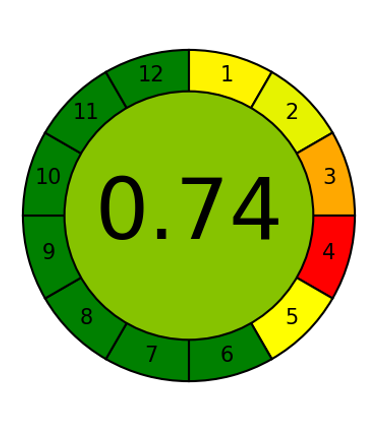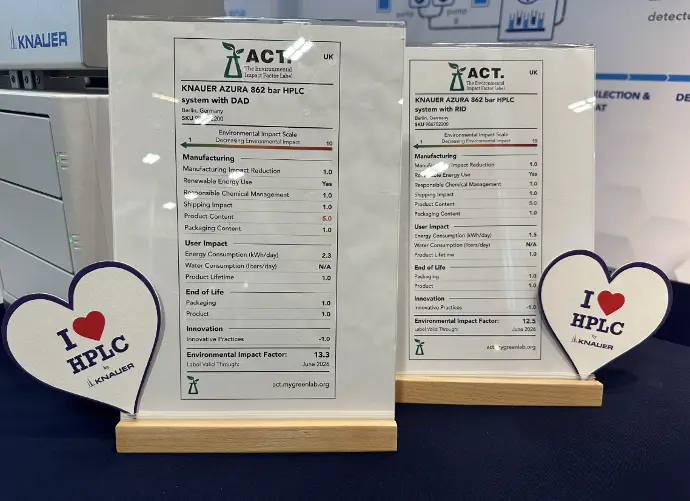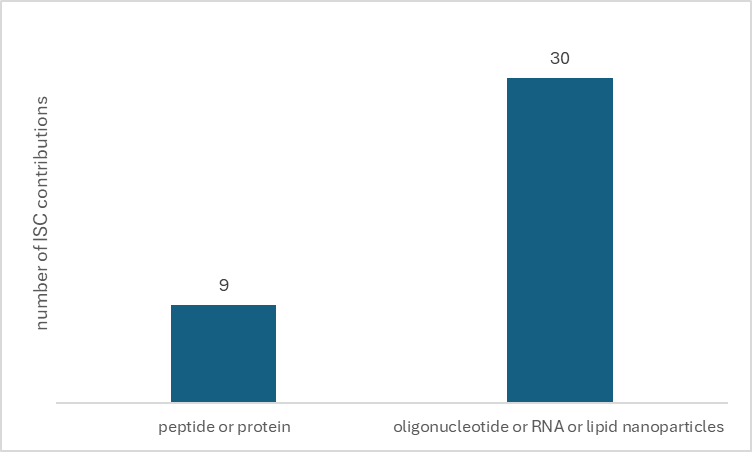Just back from the International Symposium on Chromatography (ISC)
Colleagues are asking: How was the conference in Liverpool? Was it worth attending?
Yes, let me tell you why …
What is the International Symposium on Chromatography
Have you ever attended this symposium? No? So let's start with some background information about the conference. The International Symposium on Chromatography (ISC) is now in its 34th year. The ISC is a traditional meeting organised by the major European Chemical Societies and has been held every even year since 1956. This year we were in Liverpool, the city of the Beatles, hosted by Anthony (Tony) Edge.
The symposium is a recognised forum for the discussion of analytical and purification separation techniques and this year welcomed 660 delegates from all over the world.
What are the new trends in chromatography?
What is the groundbreaking invention being unveiled at ISC this year? What is the game changer in chromatography that will revolutionise the way we think about the analytical laboratory?
If you are waiting for a new system or separation mode that no one has ever heard of, I am sorry to disappoint you.
Does that mean there has been no progress in the field? That's not true. There is a clear interest in developing new stationary phases for specific applications.
Supercritical fluid chromatography (SFC) is more and more on the agenda in both academia and industry, and two-dimensional liquid chromatography is no longer an exotic separation for a select few.
But I have seen a much bigger change than that. More than I might have expected. In my experience, this is the first chromatography conference with 2 dedicated sessions for a total of 10 orals, one plenary and one tutorial dedicated to the topics of sustainability and green chemistry.
It was a great honor to attend the plenary session of John Warner (https://johnwarner.org/), the founder of green chemistry. His message was very clear: we need to develop chemists and scientists who understand the toxicological and environmental impact of innovation to drive the development of sustainable technologies.
Awareness and education were the pillars of his presentation. He also co-founded Beyond Benign (https://www.beyondbenign.org), a non-profit organisation dedicated to supporting and promoting green chemistry education around the world.
Here is an idea for the next chromatography conferences and symposia: what if every poster had the AGREE score on it?
The AGREE score is a simple way to assess the greenness of an analytical method based on the 12 principles of green analytical chemistry (for more information, see the open access paper published by Francisco Pena-Pereira, Wojciech and Marek Tobiszewski in the Analytical Chemistry journal: https://pubs.acs.org/doi/10.1021/acs.analchem.0c01887). The score can be calculated using the open-source software tool available for download at https://mostwiedzy.pl/AGREE. The result is an easy-to-understand pictogram.

A typical pictogram for AGREE score. Image
by KNAUER
Attending the ISC was a great experience. The symposium is the perfect size for networking and has an interesting and comprehensive program.
If each presenter adds the score to the poster, this will create a cascade of awareness and knowledge. Posters should not be judged on the AGREE score. The focus should remain on the learning aspect. How many of us develop a method that only focuses on speed or efficiency? It's time to learn more.
Not only the chromatographic method, but also the laboratory and the equipment should be designed and manufactured with environmental impact in mind.
Here at KNAUER, sustainability is a topic close to our hearts. We were very proud to present our ACT Ecolabel from My Green Lab (https://www.mygreenlab.org/) during the symposium. This is an independent certification that provides scientists and purchasing professionals with third-party verified information on the environmental impact of laboratory products.
The KNAUER best-selling HPLC systems received the best Ecolabel compared to any other HPLC product currently (July 2024) in the ACT database. (https://www.knauer.net/en/knauer-hplc-systems-scored-the-greenest-in-act-ecolabel-certification/n48286?lswitch=en).

ACT Ecolabels for KNAUER HPLC systems. Image by KNAUER
Analysis of oligonucleotides and lipid nanoparticles
While peptide and protein analysis was the subject of much discussion a few years ago, attention has now shifted to the analysis of oligonucleotides, RNA and lipid nanoparticles. The numbers speak for themselves: I counted 9 papers with the words peptide or protein in the title and 30 with the words oligonucleotide or RNA or lipid nanoparticles in the title. That is 3 times more!

Number of contributions at ISC 2024 with in the title the words peptide or protein (left bar) or oligonucleotide or RNA or lipid nanoparticles (right bar). Image by KNAUER
Oligonucleotides present an interesting retention mechanism, mainly based on "on-off" retention. Shorter columns, sometimes even simple pre-columns, are shown to be ideal for separation.
KNAUER is global leader in the production of the impingement jets mixing skids (IJM) for the formulation and production of high-quality lipid nanoparticles carrying API (e.g. for mRNA vaccines). We developed analytical methods for the quality control of lipids before and after the nanoparticle formulation. The results were presented during the symposium or you can read the application note here: https://www.knauer.net/Application/application_notes/VPH0078.pdf
International Women in Chromatography Community
A final highlight of the conference was the launch of the International Women in Chromatography Community by Diane Turner, Caroline Gauchotte-Lindsay and Erin Boddie.
The Community envisions a global network for women and non-binary chromatographers to create a supportive and inclusive environment where members can thrive professionally and personally, and advance chromatography research and innovation worldwide. If you are an experienced chromatographer or just starting out in your career, this is a great opportunity to connect with people who share your similar interests and needs. If you are interested in becoming part of the community, request to join the private LinkedIn group here: https://www.linkedin.com/groups/13080121/
For further information on this topic, please contact our author:
Dr. Giorgia Greco, greco@knauer.net

